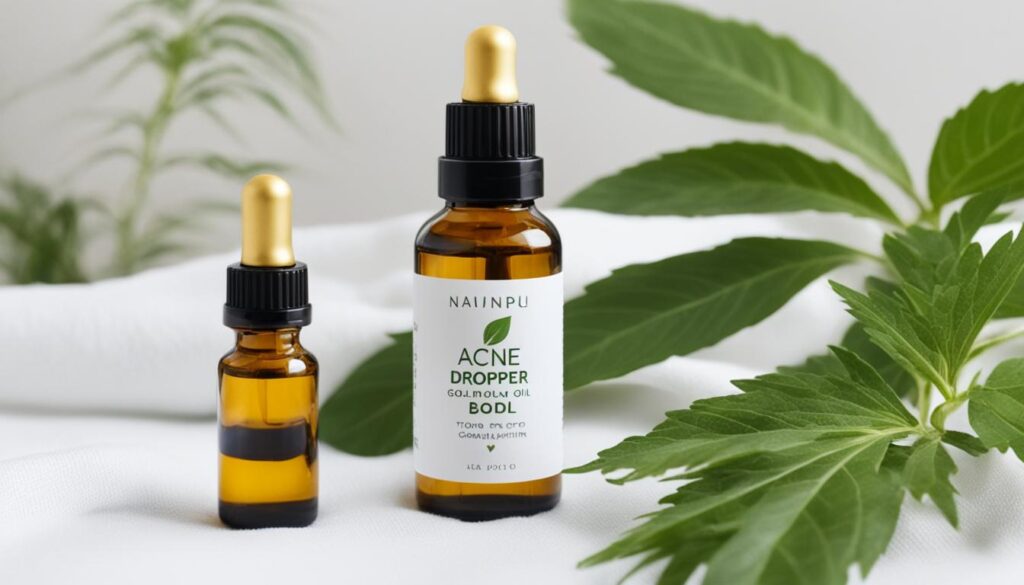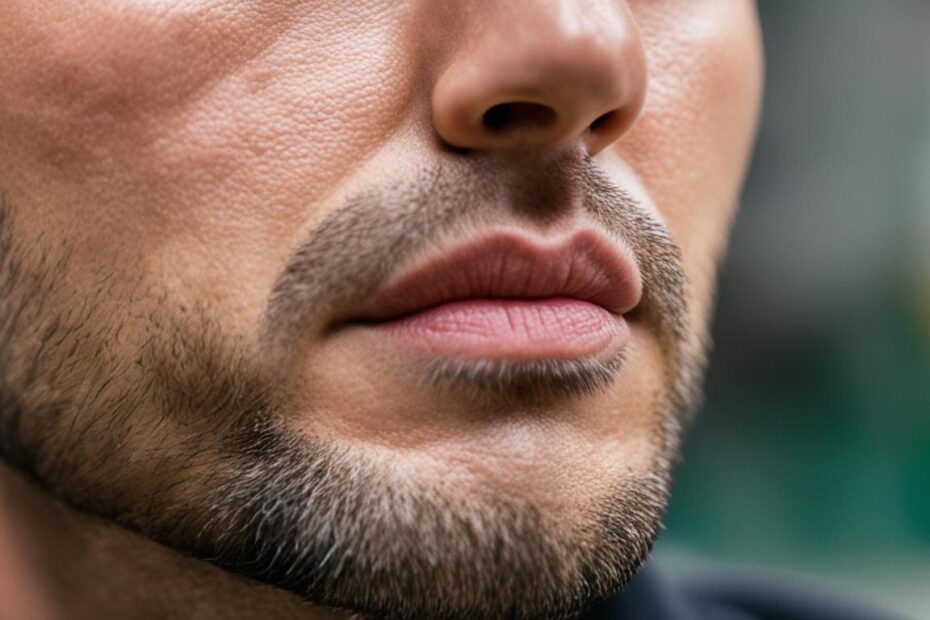Castor oil has gained popularity as a potential remedy for acne due to its antimicrobial and anti-inflammatory properties. However, before incorporating it into your skincare routine, it’s essential to understand the potential drawbacks and limitations of castor oil in treating acne.
While castor oil may offer benefits for some individuals, it may not be suitable for all skin types, particularly those prone to acne. Factors such as the drying nature of castor oil, its potential to disrupt the skin’s pH balance, and the risk of pore-clogging are important considerations.
Furthermore, it’s crucial to note that castor oil’s effectiveness as an acne treatment is not clinically proven. While it contains ricinoleic acid, which possesses potential antibacterial and anti-inflammatory properties, its impact on acne management may vary from person to person.
As with any skincare product, it’s essential to listen to your skin and understand its unique needs. Alternative options, such as other carrier oils and different skincare practices, should be explored to find the best solution for managing acne-prone skin.
Key Takeaways:
- Castor oil may not be suitable for all skin types, especially acne-prone skin.
- Its drying nature, potential disruption of the skin’s pH balance, and pore-clogging risk should be considered.
- Castor oil’s effectiveness as an acne treatment is not clinically proven.
- Exploring alternative options and seeking professional advice can aid in finding the best acne management solution.
The Drawbacks of Using Castor Oil for Acne
While castor oil is often praised for its potential acne-fighting properties, it is essential to consider its drawbacks when using it as an acne treatment. Although some anecdotes suggest castor oil can benefit acne-prone skin, there are several factors that may hinder its effectiveness and even exacerbate the condition.
“Castor oil can be overly drying, leading to skin dehydration and an overproduction of oil, which can contribute to acne.”
One of the primary concerns with using castor oil for acne is its drying effect on the skin. While oil control is crucial for managing acne, excessive drying can actually trigger the sebaceous glands to produce more oil as a compensatory mechanism. This overproduction of oil can lead to clogged pores, inflammation, and ultimately, more acne breakouts.
Additionally, castor oil may not be suitable for all skin types. Its consistency is thick and dense, which can potentially clog pores, especially for individuals with oily or acne-prone skin. Clogged pores can contribute to the development of blackheads, whiteheads, and inflammatory acne.
It’s important to note that castor oil is not a clinically proven acne treatment. While some studies indicate its potential antimicrobial and anti-inflammatory properties, the scientific research supporting its effectiveness for acne treatment is limited.
Avoiding Castor Oil for Acne Scars
Furthermore, castor oil’s effectiveness in treating acne scars is also questionable. While it may have some moisturizing properties, it is unlikely to provide significant improvement in the appearance of acne scars. The best approach for treating acne scars is to consult with a dermatologist who can recommend appropriate treatments such as laser therapy, chemical peels, or microdermabrasion.
Overall, it is important to consider the drawbacks of using castor oil as an acne treatment. Its potential to cause dryness, clogged pores, and lack of scientific evidence make it less favorable compared to other acne treatments. Exploring alternative options, such as skincare products specifically formulated for acne-prone skin and following a comprehensive skincare routine, can yield better results in managing acne.
Understanding the Properties of Castor Oil
When it comes to skincare, castor oil has gained popularity for its potential benefits. But is it suitable for acne-prone skin? Let’s take a closer look at the properties of castor oil and how it may impact breakouts.
Castor oil contains ricinoleic acid, an unsaturated omega-9 fatty acid known for its anti-inflammatory and antibacterial properties. These properties make castor oil a promising ingredient for addressing various skin concerns, including acne. However, using castor oil for acne-prone skin may have its drawbacks.
Due to its thick consistency, castor oil has the potential to clog pores, leading to breakouts. This is especially true for individuals with oily or acne-prone skin. Additionally, the use of castor oil can disrupt the skin’s pH balance, potentially exacerbating acne breakouts and causing other skin ailments.
Moreover, it’s important to consider castor oil’s limited penetration and absorption capabilities. While castor oil can provide some benefits on the surface of the skin, it may not effectively target the underlying causes of acne breakouts.
When managing acne, it’s essential to explore alternative options that are better suited for acne-prone skin. Other carrier oils, such as tea tree oil and jojoba oil, may offer similar benefits without the risk of clogging pores or disrupting the skin’s pH balance. Additionally, incorporating consistent and effective skincare practices, like gentle cleansing, exfoliation, and moisturization, can help maintain healthy skin.
Benefits of Castor Oil for Other Skin Concerns
While castor oil may not be the ideal solution for acne-prone skin, it can still have potential benefits for other skin concerns. For example, its anti-inflammatory properties may help reduce redness and irritation caused by conditions like eczema or dermatitis.
Furthermore, castor oil can provide deep hydration and nourishment to dry or flaky skin, leaving it soft and supple. Its emollient properties help lock in moisture, promoting overall skin health.
It’s important to note that individual experiences with castor oil may vary, and consulting with a dermatologist or skincare professional is advised before incorporating it into your routine.
| Pros | Cons |
|---|---|
| – Potential anti-inflammatory and antibacterial properties | – May clog pores and cause breakouts |
| – Provides deep hydration | – Can disrupt the skin’s pH balance |
| – Promotes soft and supple skin | – Limited penetration and absorption capabilities |
Overall, while castor oil may offer benefits for certain skin concerns, it may not be the best choice for acne-prone skin. Considering alternative options and seeking professional advice can help you create a skincare routine that effectively addresses your specific needs.

Conclusion
While castor oil is often hailed as a natural remedy for acne, it may not be the best choice for everyone. The potential to clog pores, disrupt the skin’s pH balance, and cause skin irritation makes it unsuitable for acne-prone skin. Additionally, castor oil is not a clinically proven acne treatment, and the benefits claimed may be more attributed to the placebo effect.
When it comes to managing acne, it’s important to take a holistic approach. This includes incorporating a skincare routine that focuses on gentle cleansing, moisturizing, and exfoliation. While castor oil may offer certain skincare benefits, considering alternative options like other carrier oils can be beneficial. It’s always advisable to seek professional advice and guidance to find the best solutions for your acne-prone skin.
Remember, what works for one person may not work for another, and each individual’s skin is unique. By being mindful of your skin’s needs and understanding the limitations of castor oil as an acne treatment, you can make informed decisions about your skincare routine and achieve healthier, clearer skin.
FAQ
Is castor oil beneficial for treating acne?
While castor oil is often praised for its potential acne-fighting properties, it may not be the best choice for everyone. It can be overly drying, disrupt the skin’s pH balance, and potentially clog pores. Additionally, it is not a clinically proven acne treatment.
Can castor oil cause acne breakouts?
Yes, castor oil may potentially cause acne breakouts, especially for those with oily or acne-prone skin. Its thickness can clog pores and contribute to the development of acne.
Does castor oil cause pimples?
Castor oil can potentially cause pimples due to its tendency to clog pores. It is important to consider alternative options for acne management, especially for those with acne-prone skin.
Is castor oil good for acne-prone skin?
Castor oil may not be well-suited for acne-prone skin due to its potential to clog pores and disrupt the skin’s pH balance. It is important to consider alternative options that are more suitable for managing acne-prone skin.
Can castor oil help treat acne scars?
There is limited scientific evidence supporting the use of castor oil for acne scars. While it may have some benefits for the skin, it is not a clinically proven treatment for acne scars. It is advisable to explore other options for scar management.





